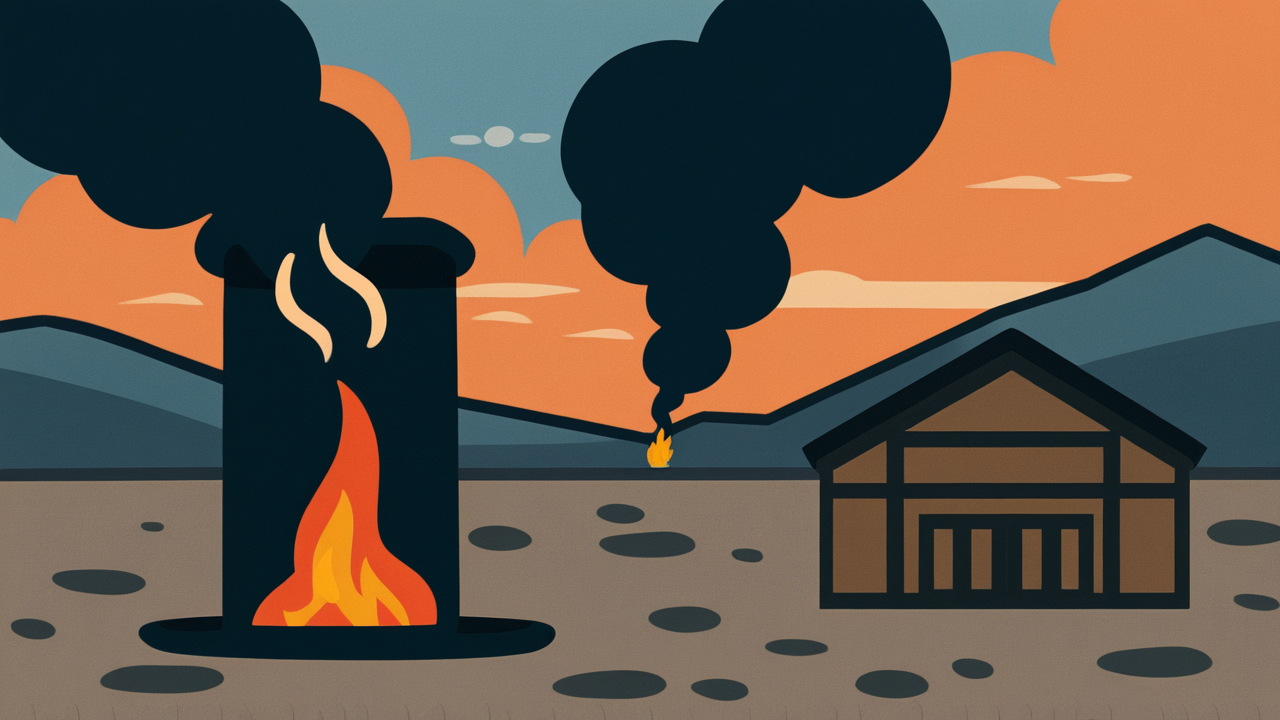How to Read “火のない所に煙は立たぬ”
Hi no nai tokoro ni kemuri wa tatanu
Meaning of “火のない所に煙は立たぬ”
This proverb means “Unfounded rumors or suspicions do not arise. It is precisely because there is some cause or fact that rumors or suspicions emerge.”
Just as it is a natural law that smoke does not rise without fire, this expresses the truth of human society that rumors or suspicions cannot be born from completely groundless places. In other words, it teaches that no matter how small a rumor may be, there must be some fact or event behind it.
This proverb is used when rumors or suspicions arise. It is employed to show the recognition that even when nothing appears problematic on the surface, stories whispered among people always have some factual basis. Even today, it is used in contexts such as organizational rumors or interpersonal troubles, in forms like “Indeed, Fire’s absent place in smoke does not rise.”
Origin and Etymology
The origin of “Fire’s absent place in smoke does not rise” actually stems from very simple and natural observation. Since ancient times, people have known through experience that wherever smoke rises, there is always fire. This obvious natural phenomenon eventually came to be used as a metaphor to express human relationships and social phenomena.
While this proverb is said to have appeared in literature from the Edo period, the concept itself is thought to have existed much earlier. Similar expressions can be found scattered throughout Japanese classical literature and collections of tales, having been passed down as wisdom deeply rooted in people’s lives.
What is interesting is that similar expressions exist in countries around the world. This is likely a manifestation of humanity’s common observational skills and logical thinking. The idea of understanding cause-and-effect relationships through the universal natural phenomenon of fire and smoke, and applying this to human social events, can truly be called a crystallization of human wisdom.
Particularly in Japan, within lifestyles where fire was felt intimately through tea ceremony culture and hearth culture, this observation likely became established as a more familiar and heartfelt expression.
Usage Examples
- The fraud allegations at that company turned out to be true after all—Fire’s absent place in smoke does not rise
- Their divorce rumors turned out to be real—Fire’s absent place in smoke does not rise
Modern Interpretation
In today’s information society, “Fire’s absent place in smoke does not rise” has taken on new meaning. With the spread of social media and the internet, the speed of information dissemination has dramatically improved, and we now commonly see phenomena where small “sparks” instantly become large “smoke” that spreads widely.
On the other hand, the problems of “fake news” and “misinformation” have also become serious in modern times. It is not uncommon for completely unfounded information to be spread as if it were fact. This could be said to overturn the premise of the traditional proverb. However, upon closer observation, such false information often has some kind of “spark” behind it. This might be malicious intent, political motives, economic interests—there is always some kind of motivation or background.
Moreover, while modern society emphasizes information transparency, privacy protection is also highly valued. Within this balance, this proverb serves as a valuable guideline teaching us both “the importance of having doubts” and “the danger of unfounded speculation.”
Precisely because we live in the digital age, the ability to discern the truth of information and the attitude of calmly analyzing the truth behind rumors have become even more important.
When AI Hears This
In today’s information society, the very nature of “smoke” has fundamentally transformed. Traditional smoke naturally rose from the tangible reality of fire, but now smoke is mass-produced like goods in a factory.
Social media algorithms are designed to prioritize “engagement” above all else, spreading emotionally stimulating information rather than truth. Research reveals that false information spreads six times faster than true information and reaches far more people. In other words, modern “smoke” doesn’t just rise without fire—it actually rises more vigorously when there’s no fire at all.
Even more troubling is the existence of “artificial sparks.” Bot accounts manipulating information, intentional disinformation campaigns, viral marketing controversies—countless fake fires are deliberately created just to generate smoke. These aren’t real fires, but they reliably produce smoke.
Fascinatingly, modern humans remain trapped in the thought pattern of “where there’s smoke, there must be fire.” This can be explained through evolutionary psychology. The human brain evolved over tens of thousands of years to recognize “smoke = warning sign of danger,” so we instinctively react the same way to digital-age artificial smoke.
As a result, we now witness the bizarre reversal where people “go looking for fire in places without smoke.”
Lessons for Today
What this proverb teaches us in modern times is the importance of “the insight to see through the truth behind superficial phenomena.” In today’s information-saturated society, we need the ability to calmly discern facts without being misled by rumors or speculation.
At the same time, this proverb teaches us humility. The fact that “there are no completely unfounded stories” shows the importance of maintaining an attitude that acknowledges there may be facts or backgrounds we don’t know about. This can also lead to the compassion of trying to understand others’ positions and situations.
It also provides an opportunity to reflect on our own actions. Our words and deeds may always be creating some kind of “smoke” around us. It’s important to strive for sincere and responsible actions in our daily lives so that this “smoke” becomes something positive.
For those of us living in modern times, this proverb is not merely an old teaching, but practical wisdom for skillfully navigating complex human relationships and information society. Let us walk through our days with eyes that can see through to the truth and hearts that understand others.



Comments